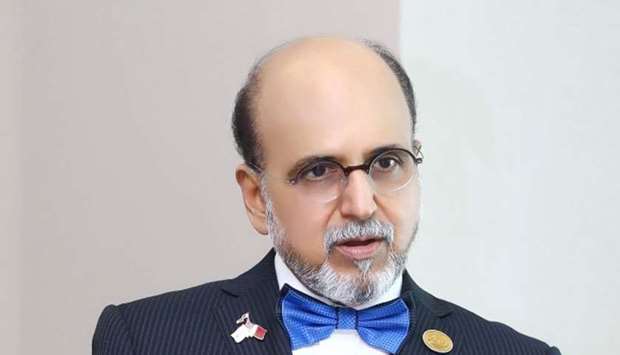*Qatar’s banking sector remains sound and the foreign liabilities that were withdrawn in the immediate aftermath of the “diplomatic rift” have been partially replaced with greater attention paid to the diversity of funding sources and deposit maturity structure, says Doha Bank CEO
Qatar’s banking sector remains sound and the foreign liabilities that were withdrawn in the immediate aftermath of the “diplomatic rift” have been partially replaced with greater attention paid to the diversity of funding sources and deposit maturity structure, says Doha Bank CEO Dr R Seetharaman.
Official deposits placed with banks after the diplomatic rift have been reduced, he said. And as higher oil prices and returning foreign liabilities enhance banking liquidity, credit to the private sector is growing at a healthy pace, he noted.
“Qatar Central Bank continues to closely monitor developments in the real estate sector in view of the softening in prices and potential implications for the banking sector,” Seetharaman told Gulf Times in an interview.
He said Qatar's plans to increase liquefied natural gas production capacity from 77mn tonnes per year (tpy) to 110mn tpy in the next couple of years “signals a new era of growth” led by the planned expansion of North Field production. This will further boost Qatar’s leading global position in the next couple of years.
“As the country’s hydrocarbon sector develops further, the non-hydrocarbon sector can also witness activity,” the Doha Bank CEO noted.
This year, Seetharaman said, the State of Qatar “successfully returned” to the international financial markets with a total of three tranches worth a total of $12bn.
The first tranche included five-year bonds worth $2bn, which was priced at 90 basis points over the US Treasury bonds.
The second tranche for 10 years worth $4bn was priced at 135 basis points over the US treasury basis points, while the third tranche for 30 years worth $6bn was priced at 175 basis points above US Treasury bonds.
In December last year, S&P Global Ratings announced that it revised its outlook on Qatar to stable from negative. It affirmed Qatar’s ‘AA-/A-1+’ long-and-short-term sovereign credit ratings.
And according to the International Monetary Fund’s April 2019 outlook, Qatar's economy is expected to grow by 2.64% this year, Seetharaman noted when asked how Qatar's economy, financial system in particular, weathered the blockade that was imposed on the country by a quartet of Arab nations in June 2017.
He emphasised that Qatar has continued its reforms to become a “self-reliant” economy.
The recent reforms include ‘AgriteQ,’ a new initiative by the Ministry of Municipality and Environment and the Qatar Development Bank to raise the level of self-sufficiency in eggs production from 28% to 65%.
The joint initiative includes the establishment of eight medium-sized projects to produce eggs in registered farms. Projects to increase production of fish, vegetables, red meat, and shrimps have also been launched to attain self-sufficiency in these by 2023.
The economic zones in Qatar such as Umm Al Houl Free Zone aim at providing a level of an economic security in terms of free flow of goods to the state and the local market.
This is in addition to supporting the process of economic diversification by strengthening the gross domestic product and attracting investors from around the world as part of economic diversification away from oil and gas.
Seetharaman said the Qatar Stock Exchange plans to bring about various reforms in the near term. It includes increasing the number of Qatari companies listed on MSCI EM Index, deepening and increasing the efficiency and liquidity of the market, creating a suitable climate to attract foreign investments, boosting product diversification and service innovation to attract and support the needs of both local and global investors and expanding and enhancing fintech and transforming Qatar into a regional hub in financial IT applications.
The much-awaited initial public offering of Baladna Food Industries, Qatar’s largest producer of fresh dairy, is expected to hit the stock market in the last quarter of this year.
Qatar’s push to the SME sector, Seetharamans aid, can be seen in Qatar Petroleum’s ‘Tawteen’, an initiative to enhance localising the sector’s supply chain and expand the small and medium enterprises base. Tawteen was launched by QP in February.


